This book offers a commentary on the 'Maxims of Good Discourse', an exceptional text from Ancient Egypt's Old Kingdom (ca. 2670 - 2205 BCE), written over 4000 years ago by a man called Ptahhotep. By way of a deliberate instruction given by a father to his (spiritual) son, it enables the latter, by way of good discourse, to live the good life, the outcome of not interrupting the moment of the heart, offending one's vital energy (Ka). Such an excellent son, an Egyptian gentleman during life, will be a justified deceased in the afterlife. To the British, a 'Gentleman' is modest, well-mannered, self-deprecating, quietly intelligent, considerate of other people's feelings, well-informed, and never vulgar, inflated, vain, boastful, noisily ignorant, sleazy or common. So too in Egypt. The 'Maxims' describe a special kind of discourse, one leading to a happy life. This by engaging in proper thoughts, speech and actions. Morality is rooted in thought (heart) and speech (the right or wrong use of the tongue).
Hinweis: Dieser Artikel kann nur an eine deutsche Lieferadresse ausgeliefert werden.
Hinweis: Dieser Artikel kann nur an eine deutsche Lieferadresse ausgeliefert werden.

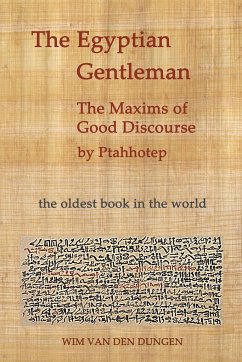

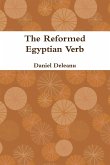

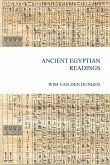
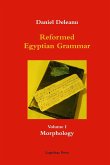
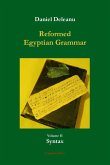
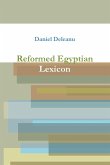
![Presidential Succession Scenarios in Egypt and their Impact on U.S.-Egyptian Strategic Relations [Enlarged Edition] Presidential Succession Scenarios in Egypt and their Impact on U.S.-Egyptian Strategic Relations [Enlarged Edition]](https://bilder.buecher.de/produkte/67/67141/67141691m.jpg)